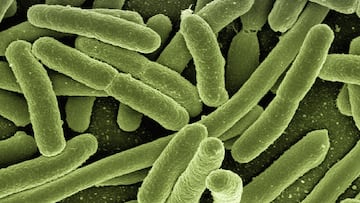Sausage product recall: What is listeria and what are its symptoms?
Nearly 53,000 pounds of ready-to-eat sausage products have been recalled after safety inspectors found they may have been contaminated with Listeria.

The US Department of Agriculture’s Food Safety and Inspection Service (FSIS) announced over the weekend that nearly 53,000 pounds of ready-to-eat sausage products are being recalled due to potential a Listeria contamination. So far there have been no confirmed reports of any one having adverse reactions from consuming the products.
A routine inspection discovered Listeria monocytogenes, which can cause listeriosis, on surfaces of a production facility where the recalled products had come into contact. The items on the list were shipped nationwide and persons concerned about injury or illness are advised to contact a healthcare provider.
The CDC recommends throwing away the recalled items or returning them to where they were purchased and cleaning your refrigerator as well as any surfaces that may have come into contact with the products.
When food is recalled because of germs like E. coli or Listeria, check your fridge. Throw out the recalled food if you have it and clean your refrigerator right away. Germs in the recalled food could spread to drawers or shelves in the fridge. Learn more: https://t.co/fpHvSUrdqL pic.twitter.com/k5cKKOCeuw
— CDC (@CDCgov) November 12, 2022
What is Listeria and how is it dangerous?
Listeria monocytogenes is a bacterium that can cause severe infections which can be fatal in young children and frail or elderly people as well as others with weakened immune systems. It can also lead to pregnant women having miscarriages and stillbirths.
It may result in short-term illness in healthy individuals with symptoms including high fever, severe headache, stiffness, nausea, abdominal pain and diarrhea.
What are the symptoms?
Related stories
Basic symptoms are similar to what can be experienced with usual infetions from food.
- a high temperature of 38C or above
- aches and pains
- chills
- feeling or being sick
- diarrhoea
The serious symptoms for listeria are if the bacteria infects beyond your gut. If it reaches the bloodstream, the bactera can damage your central nervous system. This can result in symptoms such as confusion, loss of balance and convulsions. Clearly these are serious symptoms and medical assistance is necessary. At this stage of the illness, there is a 20-30 percent chance of death.


